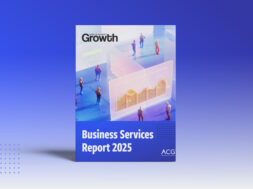Private Markets Respond to Coronavirus Disruption
Investors are reevaluating their dealmaking strategies and company supply chains in the wake of the coronavirus outbreak.

This story originally appeared in the May/June 2020 print edition of Middle Market Growth magazine. Read the full issue in the archive.
Michael Butler had a front-row seat to the coronavirus outbreak. As chairman and CEO of Seattle-based investment bank Cascadia Capital, he witnessed the West Coast city grind to a halt as those testing positive for the coronavirus surpassed 1,000 in Washington on March 17.
A day earlier, Cascadia received a letter of intent from a prospective client that Butler did not expect to hear from. It was an industrial company based in Italy, a country with more than 30 times the number of COVID-19 cases as the state of Washington at the time, in addition to a national quarantine and strict domestic travel restrictions. What’s more, the company said they wanted to close a deal in fewer than 45 days.
Middle-market private equity firms across the U.S. reported a similar race to close deals that were in progress, as state governments began limiting commercial activities to “essential” businesses and telling residents to stay home. Although some deals in advanced stages have made it to the finish line, many were put on hold. At the same time, travel restrictions have made it more difficult to hold sourcing meetings or perform due diligence.
Even as deals are put on pause and companies wait to come to market, identifying new opportunities isn’t a top priority for many investors as they turn their focus to businesses they already own. “Deals that are pretty far along are continuing to get done,” Butler says. “And then we see a lot of private equity funds that have put their arms around their portfolios.”
Many firms are focusing on supporting their portfolio companies to ensure employees are safe, operations remain up and running, and that cash is available to get them through the downturn.
The next few months could be rocky for private equity portfolios, as the U.S. enters a recession. But if history is any guide, PE-backed businesses may weather a slowdown better than their publicly traded peers.
According to a recent PitchBook report, private equity investments trailed public indexes in 24 of the 28 quarters since 2001 when the S&P 500 total return was up 5% or more. Yet for all 21 quarters when the index’s total return was negative, private equity portfolios outperformed the public markets. “The drawdown the public markets are experiencing in Q1 2020 is likely to be more extreme than what the private markets will realize,” the report’s authors wrote.
Although public exchanges experienced a rebound early in the second quarter of 2020, extended lockdowns could lead to more volatility in the future.
Supply and Demand
Even if private companies are likely to fare better than their publicly traded peers, that’s cold comfort for those facing challenges on both the supply and demand fronts.
Still, the shock to supply chains from the coronavirus outbreak in China could have been worse. Due to earlier changes made in response to the U.S.-China trade dispute, many midsize companies with supply sources in China had already begun to insulate themselves from disruption, according to Eva Davis, co-chair of law firm Winston & Strawn’s private equity practice.
“The supply-side issues were easier to measure, and therefore predict and potentially fix over the long term.”
Eva Davis
Co-Chair of Private Equity Practice, Winston & Strawn
When the virus began to spread in earnest in February and factories in China shuttered, many businesses that had taken steps to mitigate their exposure to Chinese suppliers were in a good position to transition to suppliers elsewhere in Asia.
But since then, concerns about supply have been overshadowed by a collapse of demand. Moves by governments to close businesses and limit movement by residents have created a more difficult set of challenges. “The supply-side issues were easier to measure, and therefore predict and potentially fix over the long term,” Davis says.
To help their companies survive the drop in consumer spending, private equity firms may need to inject more capital into their businesses. Others are instructing their companies to draw down their credit lines, which could become difficult as the economic fallout deepens. “There’s some real key concerns about credit markets and valuing risks going forward,” said Robert Dye, senior vice president and chief economist at Comerica Bank, speaking during a webinar hosted by ACG in March.
In the event of a credit crunch, PE firms and their portfolio companies could lean on lending sources from outside the traditional banking system.
In a February report, the Financial Stability Board estimated that nonbank capital providers, including PE firms, held $50.9 trillion of assets. Meanwhile, the total of outstanding leveraged loans is around $2 trillion, with $1.3 trillion held by institutional investors, according to testimony at an SEC Committee hearing last September.
Once M&A activity picks back up, the economic crisis could prompt PE investors to adopt more conservative capital structures and place greater scrutiny on underwriting practices, according to the PitchBook report.
Davis has seen a growing number of private equity firms include earn-out clauses in their deals. A portion of the promised capital would be kept in reserve until conditions improve and the company can show that it’s growing again. Cascadia’s Butler has seen firms paying more attention to “material adverse changes” clauses in deals to address coronavirus risks.
If there’s a silver lining to the market disruption, it could be the end of historically high prices for companies, although the impact on valuations remains to be seen. And it’s still too soon to tell when dealmaking will resume, and when an economic recovery will begin.
Early into the economic crisis, some economists were forecasting a V-shaped recession, characterized by a rapid decline followed by an equally swift economic recovery.
But now that shelter-in-place mandates have kept shoppers at home and businesses closed into April, some are revising their forecasts.
One alternative trajectory, described by RSM US Chief Economist Joseph Brusuelas in an interview with CNBC on April 13, is that of a “Nike swoosh,” with a deep downturn and an elongated recovery. But as the situation evolves, that prediction could change, too.
“There’s more that we don’t know than we know,” Bruseulas said. “It’s forecasting on a very cloudy day.”

Benjamin Glick is Middle Market Growth’s associate editor.


